[Newsbits] 5.01.2024: Similipal Kai Chutney, GSAT-20, Wetland City Tag & more
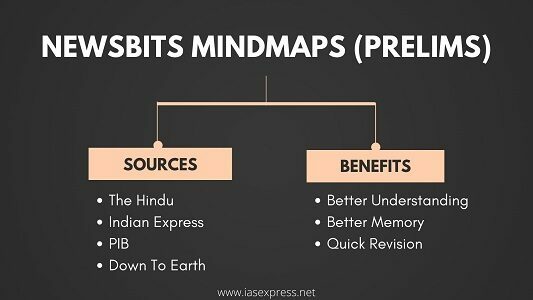
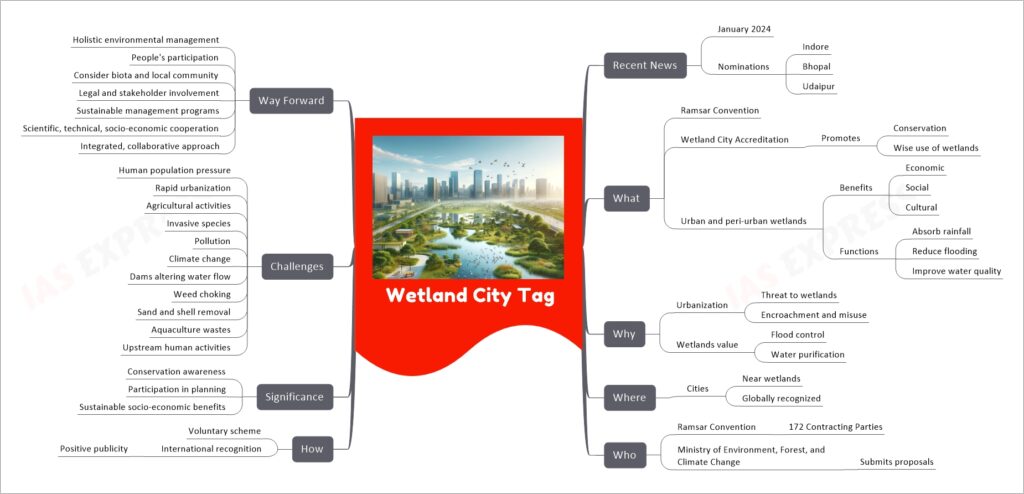
The Wetland City Tag is a part of the Ramsar Convention’s Wetland City Accreditation scheme, aimed at promoting the conservation and wise use of urban and peri-urban wetlands. Recently, in January 2024, three Indian cities – Indore, Bhopal, and Udaipur – were nominated for this accreditation. This scheme is significant as it recognizes cities that value their natural or human-made wetlands and encourages their conservation and sustainable use. Wetlands provide numerous benefits, including flood control, water purification, and contributing to economic, social, and cultural well-being. However, they face threats from urbanization, pollution, climate change, and other human activities. To counter these threats, a holistic approach involving stakeholder participation, legal frameworks, and sustainable management is essential for wetland conservation.

The Supreme Court Legal Services Committee (SCLSC) in India, established in 1987, primarily focuses on providing free legal aid to marginalized and weaker sections of society. This is in line with the provisions of the Legal Services Authorities Act of 1987. The SCLSC is responsible for administering the legal services program as it relates to the Supreme Court. Composed of nine members appointed by the Chief Justice of India, it recently saw Justice BR Gavai appointed as its new head in January 2024. The committee’s key functions include formulating policies and principles, developing economical schemes for legal aid, and promoting legal literacy and awareness, particularly among the poorer segments of society.
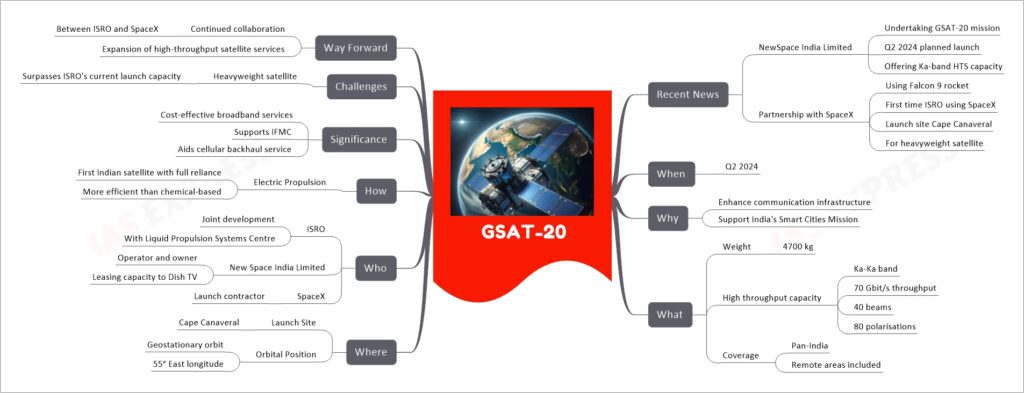
The GSAT-20 satellite, scheduled for launch in the second quarter of 2024, represents a significant advancement in India’s space capabilities. Operated by NewSpace India Limited and developed jointly by the Indian Space Research Organisation (ISRO) and the Liquid Propulsion Systems Centre, this mission marks the first time ISRO is partnering with SpaceX, using their Falcon 9 rocket. The GSAT-20, weighing 4,700 kg and employing electric propulsion, is designed to enhance India’s communication infrastructure, particularly supporting the Smart Cities Mission. It features a high-throughput Ka-band communications payload, capable of delivering 70 Gbit/s throughput across 40 beams, effectively creating 80 polarizations for extensive coverage, including remote areas of India. This mission underscores India’s commitment to advancing its satellite communication technology while addressing challenges such as the satellite’s heavyweight.
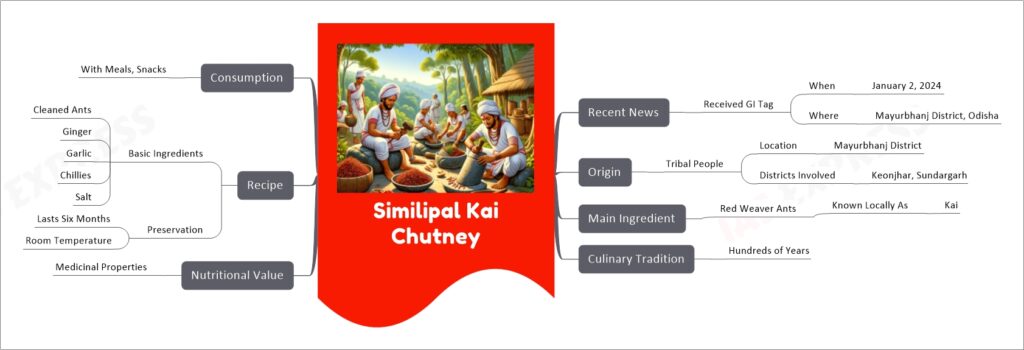
Similipal Kai Chutney is a traditional delicacy from the tribal regions of Odisha’s Mayurbhanj district, primarily made from red weaver ants known locally as ‘Kai’. This unique chutney, part of the culinary heritage for hundreds of years, received a Geographical Indication (GI) tag on January 2, 2024. The chutney, celebrated for its medicinal properties and nutritional value, typically includes ingredients like ginger, garlic, chillies, and salt. It’s noted for its long shelf life, lasting up to six months at room temperature, and is commonly consumed with meals and snacks.
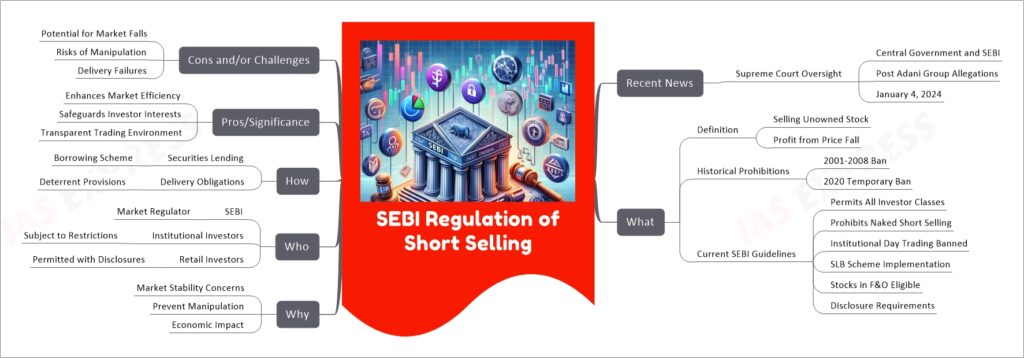
The Indian Government, through the Securities and Exchange Board of India (SEBI), has implemented a comprehensive framework to regulate short selling in the securities market. Short selling involves selling a stock that the seller doesn’t own at the time of the trade, aiming to profit from a price drop. SEBI’s recent guidelines permit all classes of investors to engage in short selling, strictly prohibiting naked short selling. Institutional investors face restrictions like the ban on day trading and are required to declare their short sales. The Securities Lending and Borrowing (SLB) scheme supports this practice. These measures aim to enhance market efficiency, protect investor interests, and maintain a transparent and secure trading environment.
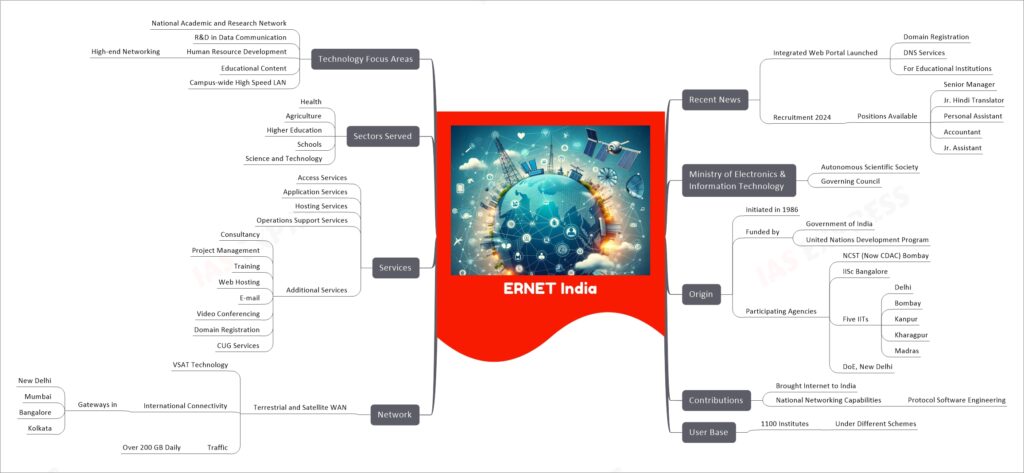
ERNET India, an autonomous scientific society under the Ministry of Electronics & Information Technology, plays a pivotal role in India’s digital landscape. It was established in 1986 with joint funding from the Government of India and the United Nations Development Program, and it involves top academic institutions like IISc Bangalore and the IITs. ERNET India was instrumental in introducing the Internet to the country and has since developed a sophisticated terrestrial and satellite network to support its vast user base of over 1100 institutes. The organization is not just about providing connectivity; it also offers a range of services like web hosting, e-mail, video conferencing, domain registration, and other IT and ICT services, catering to sectors like health, agriculture, education, and science & technology. Recently, they launched an integrated web portal for educational institutions and announced their 2024 recruitment.
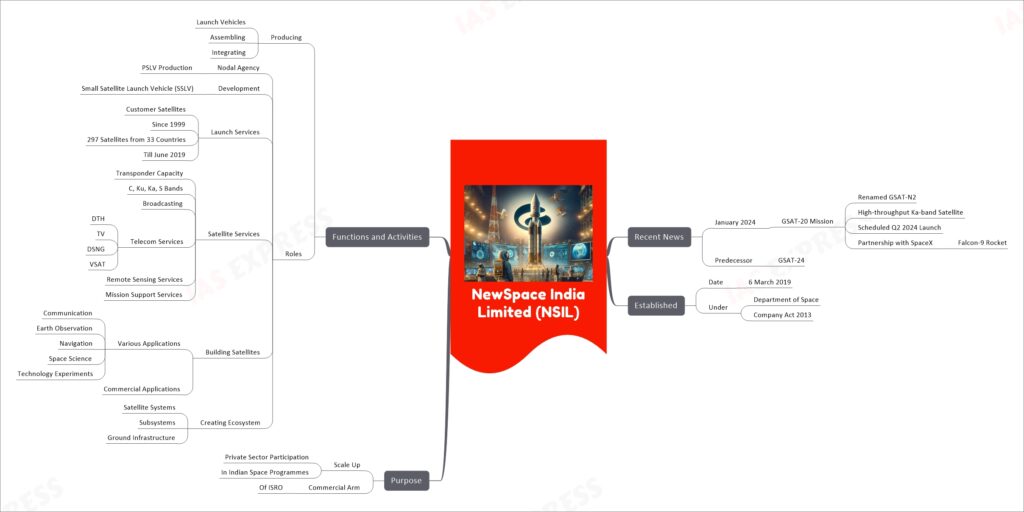
NewSpace India Limited (NSIL), established on March 6, 2019, under India’s Department of Space, serves as the commercial arm of the Indian Space Research Organisation (ISRO). Its primary role is to enhance private sector involvement in India’s space programs. NSIL is currently preparing for the GSAT-20 mission, scheduled for the second quarter of 2024, in collaboration with SpaceX using the Falcon-9 rocket. The company’s functions encompass producing and assembling launch vehicles, offering satellite services across various spectrums, and contributing to building satellites for diverse applications. NSIL is central to scaling up India’s technological capabilities in the space sector, emphasizing industry participation and global service provision.
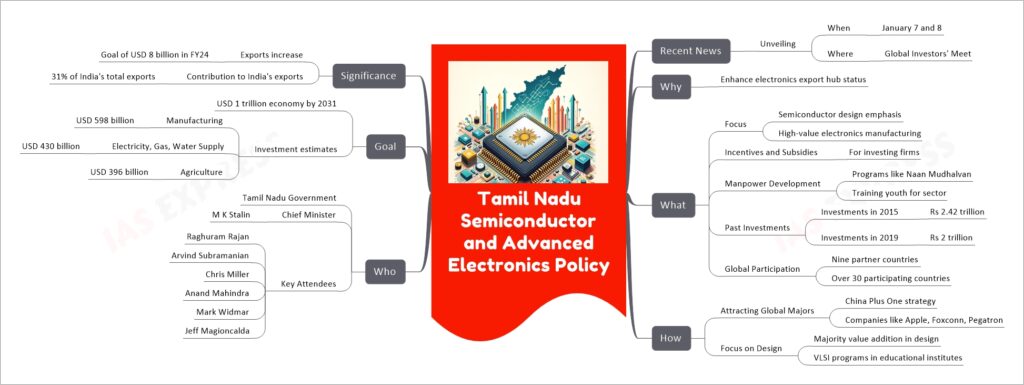
Tamil Nadu’s Semiconductor and Advanced Electronics Policy is a strategic initiative set to be unveiled at the Global Investors’ Meet on January 7 and 8. The policy aims to boost Tamil Nadu’s status as a major electronics export hub in India, with a strong emphasis on semiconductor design and high-value electronics manufacturing. The government anticipates record investments and has plans for incentives and subsidies to attract firms. This policy is part of Tamil Nadu’s larger goal to become a USD 1 trillion economy by 2031, with substantial investments in various sectors.

Nano urea, a nanotechnology-based fertilizer, is an innovative product introduced in India to enhance agricultural productivity while being environmentally friendly. It is designed to release nutrients in a controlled manner, offering higher efficiency and cost-effectiveness compared to conventional urea. The Indian government has been promoting nano urea to reduce dependence on traditional fertilizers, aiming for self-sufficiency in urea production by 2025-26. Despite its benefits, recent field studies by Punjab Agricultural University have shown a decrease in crop yields (rice and wheat), posing a challenge to its efficacy. The government plans to expand production facilities and further research is needed to address these yield concerns.
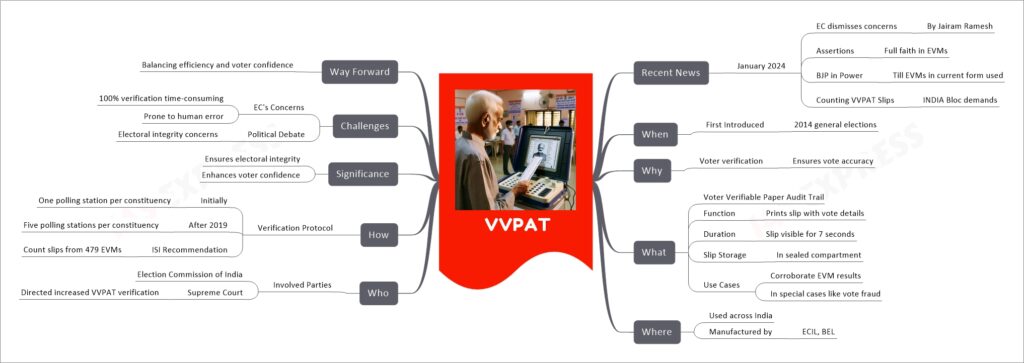
Voter Verifiable Paper Audit Trail (VVPAT) is a system used in Indian elections to enhance the transparency and reliability of the voting process. Introduced in 2014, VVPAT machines print a slip with the voter’s choice, allowing them to verify their vote before the slip is securely stored. This mechanism serves to corroborate results from Electronic Voting Machines (EVMs), especially in cases of alleged vote fraud. Recently, there have been discussions and proposals for changes in VVPAT use, including a proposal for 100% counting of slips to enhance trust in elections. While the Election Commission of India maintains faith in the current protocol, which involves verifying VVPAT slips from five polling stations per constituency, there is an ongoing debate about electoral integrity and the challenges of balancing efficiency with voter confidence.
If you like this post, please share your feedback in the comments section below so that we will upload more posts like this.
